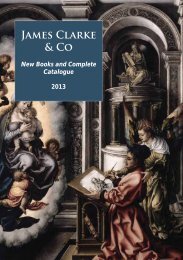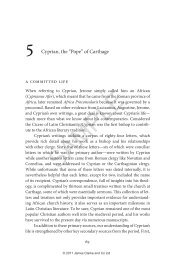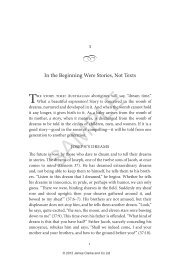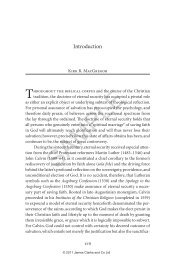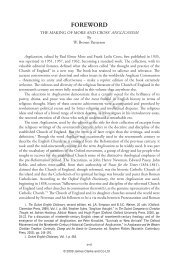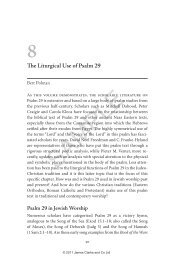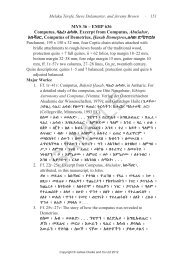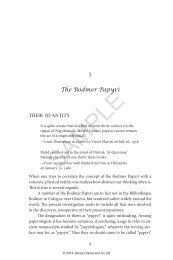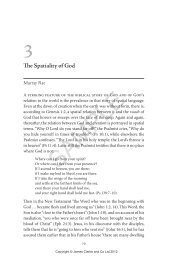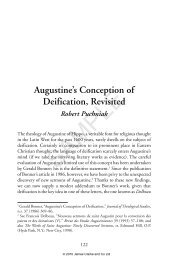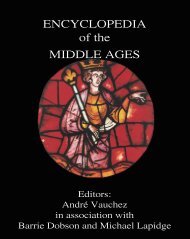Extract from Chapter 1 - James Clarke and Co Ltd
Extract from Chapter 1 - James Clarke and Co Ltd
Extract from Chapter 1 - James Clarke and Co Ltd
You also want an ePaper? Increase the reach of your titles
YUMPU automatically turns print PDFs into web optimized ePapers that Google loves.
The Textual Words of the Analects <strong>and</strong> the Letter to the Galatians<br />
55<br />
clear, <strong>and</strong> our knowledge of their worlds is limited. But these assumptions<br />
do not lead us to despair; we need to be all the more diligent in<br />
seeking underst<strong>and</strong>ing. They are, after all, “classics.”<br />
The Meanings of “Classics”<br />
The letter of Paul to the Galatians is indisputably one of the most influential<br />
canonical texts of the Christian tradition. The Analects is also well<br />
regarded as one of the classics. The Chinese word “classics” (jing) carries<br />
the connotation of “weaving”—implying the intertextual responsibility<br />
of text, author, <strong>and</strong> reader in the discovery, transmission, <strong>and</strong> practice of<br />
wisdom, whether by way of an oral/auditory or written medium. The ancient<br />
Chinese language, the language of the Analects, is not so much comprised<br />
of descriptive statements of what the world is, but performative<br />
<strong>and</strong> prescriptive utterances for guiding people into action <strong>and</strong> moving<br />
them toward the world as it should be. 3 The classics are texts containing<br />
communal wisdom, have stood the test of time, <strong>and</strong> continue to empower<br />
the community to live in wholeness. In our modern (Western) world,<br />
“the classics” refer to enduring normative texts that have a revelatory,<br />
transcendental, <strong>and</strong> objective nature. The classics contain the eternal<br />
principles of the cosmic order; they are works whose ideals <strong>and</strong> precepts<br />
transcended the historical circumstances of their origins <strong>and</strong> formed<br />
the basis of the social, political, economic, <strong>and</strong> religious institutions that<br />
followed.<br />
The classics in the modern Western sense are concerned with truth,<br />
ancient Chinese classics with practical wisdom, a wisdom that is generative<br />
of life abundant. There is no lexical equivalent for truth in classical<br />
Chinese. In the West (especially in modernity), truth is equated with<br />
“objective reality.” Modern epistemology tells us that we discover “objectivity”<br />
through the discovery of “the Eternal One,” that “it is by virtue of<br />
analogy with this ‘objective One’ that we are able to disengage <strong>from</strong> our<br />
contexts, thereby resolving them into ‘objects’ independent of ourselves.” 4<br />
The suggestion here is not a dichotomous underst<strong>and</strong>ing between classical<br />
Chinese <strong>and</strong> modern Western languages—as though one were pre-<br />
SAMPLE<br />
3. See Hansen, Daoist Theory of Chinese Thought, 33–52, on dao as linguistic communication<br />
for leading people on the way (dao).<br />
4. Ames <strong>and</strong> Rosemont, Analects, 31.<br />
© 2008 <strong>James</strong> <strong>Clarke</strong> <strong>and</strong> <strong>Co</strong> <strong>Ltd</strong>



